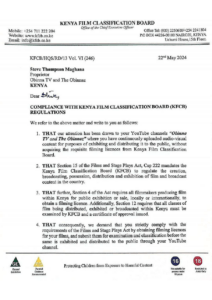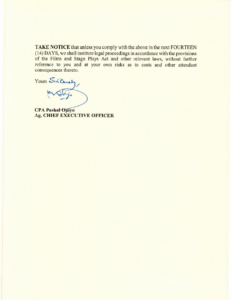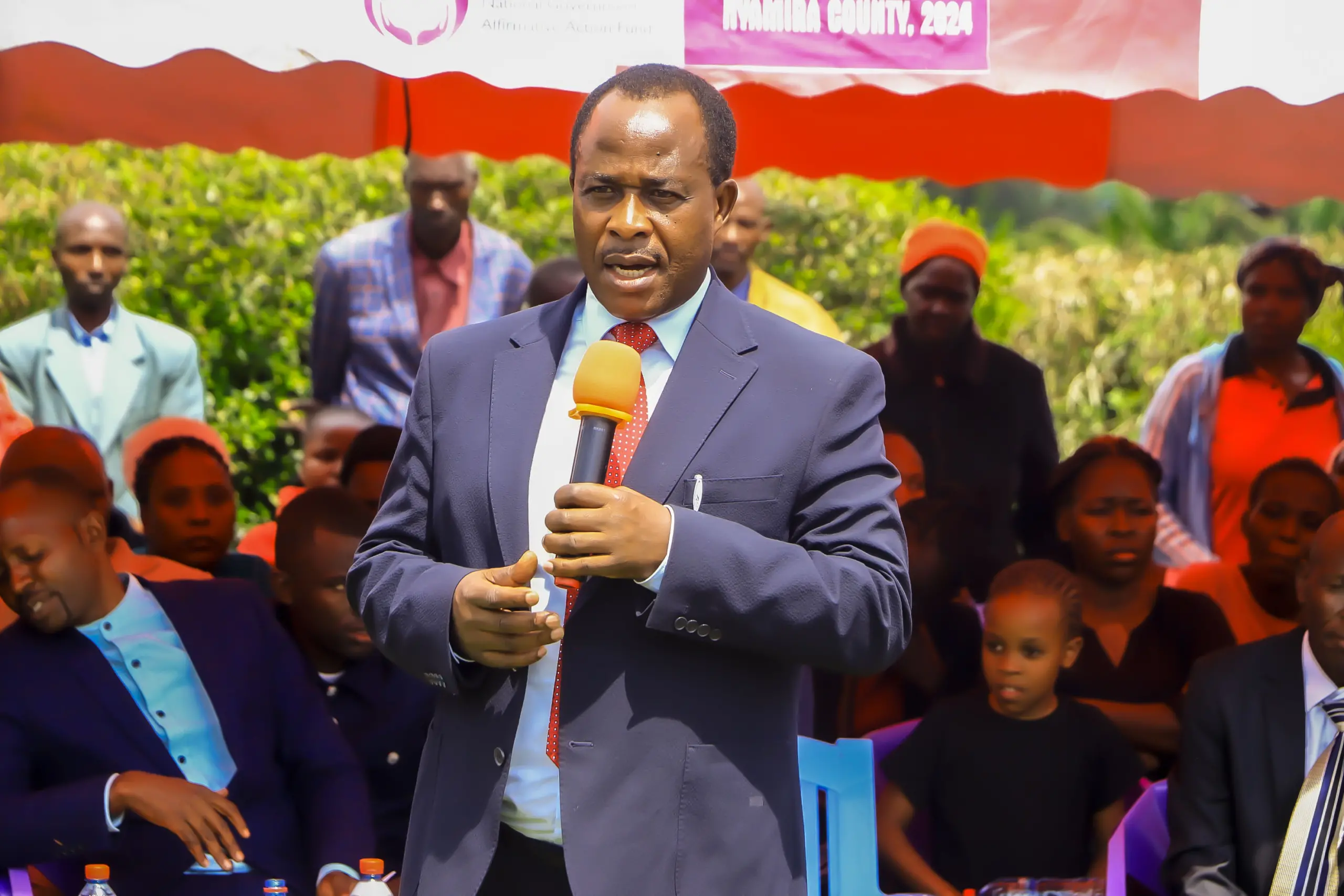
By TWN Team
A Kenyan resident has petitioned the High Court over what he termed as contravention of the Constitutional of Kenya by Kenya Films and Classification Board (KFCB).
KFCB had written letters of notice to some YouTube content creators for uploading audio-visual content without licences.
A concerned Kenyan, Frederick Bikeri Ochoiki (the petitioner) filed a petition through Elkana Mogaka and Associates Advocates saying KFCB wants to enforce orders that are unconstitutional, unfair and frankly unjust.
“That our attention has been drawn to your YouTube channel “Dr. Linda Muthoni” where you have continuously uploaded audio-visual content for purposes of exhibiting and distributing it to the public, without acquiring the requisite filming licenses from Kenya Film Classification Board,” read part of the letter.
The letter dated May 22, 2024 demands that the content creators strictly comply with the requirements of the Film and Stage Plays Act by obtaining filming licenses for their films, and submit them for examination and classification before they are exhibited and distributed to the public through YouTube channels.
“Take note that unless you comply with the above in the next 14 days, we shall institute proceedings in accordance with the provisions of the Film and Stage Plays Act and other relevant laws , without further reference to you and at your own risk as to costs and other attendant consequences thereto,” warned the letter.
Many Kenyans took to online to accuse KFCB of undermining talent growth in the country by the trying to pierce into the hard earned coins by the content creators.
In his petition (dated June 3, 2024), Frederick Bikeri Ochoiki, told the court that demands by the respondent is a direct attack on the burgeoning creative industry in Kenya.
“If the demand letters by the respondent are left to be enforced, they will stifle what little growth and progress, honest working creatives in Kenya have made,” read the petition.
He further states that the respondent is unilaterally attempting to license the social media videos posted by ordinary Kenyan youth, without engaging stakeholders without giving them an opportunity to be heard and air their reservations.
The petitioner prays that the demand letters must be stopped because the respondent will breach one of the key tenets of the Constitution and active public participation, under Article 10.
“The demand by the respondent will see ridiculously exorbitant fees imposed on Kenyan creatives which are especially unfair when compared with their contemporaries in other countries,” read the petition. “That in the demand letters served, the respondent is seeking to enforce regulation, and licensing fees on the videos Kenyans post on social media platforms regardless of whether these videos earn fees or not.”
The petitioner was fears that the respondent is trying to force Kenyan youths to pay licencing fees for videos that do not really earn them a living.

He feels that the State has lost the moral argument in this application and review and must be held accountable by law and the judicial system who must act in concert to protect Kenyan talent.
“Instead of the State coming up with affirmative action programmes to build the youth as per the call in Article 53 of the Constitution, this State agency is instead using premature licensing of a sector that does not yet have the capacity to pay licensing fees,” the petitioner agues.
He opines that the state seeking parity in pay for the content creators from Facebook, Google and other multinational organizations to which our talented Kenyans are uploading their content and they are instead attempting to take the little earnings the Kenyans are attempting to make a living with.
He further argues that the state should regulate and seek fees from the multinational companies such as Google, Facebook, Twitter ‘X’, that make millions off the advertising on their platforms from Kenya instead targeting the very youth whose talents are the soul and culture of the Country, and whose content act as a tourist export and show the world the beauty of Kenya.
“Instead of protecting Kenyans, for Kenya, the State has turned heel and come after Kenyans at the expense of the billion-dollar valued companies who enjoy autonomy and success using Kenyans,” he petitions.
The petitioner sought instant preservation orders via a temporary injunction for the suit to stop the enforcement of these demand letters pending this necessary adjudication by the court.
“That unless the orders sought are granted, the applicants that Kenyan youth, the most active on social media will be prejudiced, stifled and curtailed as they attempt to earn themselves a decent living,” he said in the petition.
In his sworn affidavit, the petitioner says “That the requirements for the acquisition of a filming licence before one can upload a video on social media is unnecessary interference with the freedom of artistic expression and makes the whole process of film production tedious, laborious, and unnecessarily bureaucratic.”
He further asks the court, in the interest of justice, to intervene to uphold the rights of creatives as envisioned in the Constitution of Kenya 2010.
On June 6, 2024, Justice Lawrence N. Mugambi directed that the petition and application be served within 3 days and responses to the applications and petition be filed within 14 days from the date of the service.
“That further affidavit if need be may be filed by the Applicant together with written submissions
Within 14 days from the date of service of the response,” read the orders. “That respondent Submissions be filed within 14 days from the date of service of the Applicant’s submissions.”
Further directions will be issued on July 18, 2024.



